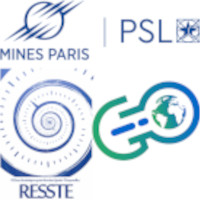Deep kernel learning for geostatistics
1 : Mines Paris - PSL (École nationale supérieure des mines de Paris)
Université Paris sciences et lettres
60, boulevard Saint-Michel 75006 Paris -
France
2 : Mines Paris - PSL (École nationale supérieure des mines de Paris)
Université Paris sciences et lettres
Gaussian processes represent a rich class of models for supervised learning, particularly for mapping natural variables in geostatistics. They are especially appealing in that they provide a quantification of the prediction accuracy at new locations. Traditional implementations assume second order stationarity. This hypothesis is generally violated when considering large datasets issued from modern sensor networks or satellite images. Various constructions have been proposed to overcome this limitation, such as varying parameter approaches in convolution models or in stochastic partial differential equations, but they remain difficult to handle. In this work, we consider the space deformation approach where the estimation of the deformation is considered as a transport problem. In this regard, we model the deformation function with neural networks inspired by normalizing flows, which are particularly taylored to this problem. Normalizing flows classically learn to transform a given, generally easy to sample, distribution into the data distribution. Here, we consider instead learning a bijective transformation from the input geographic space to the deformed space, where stationarity and isotropy hold. The estimation procedure is based on gradient descent optimization over the negative loglikelihood, which is scaled up using symbolic kernel matrices. The approach is illustrated both on synthetic data and a real dataset.

 PDF version
PDF version
